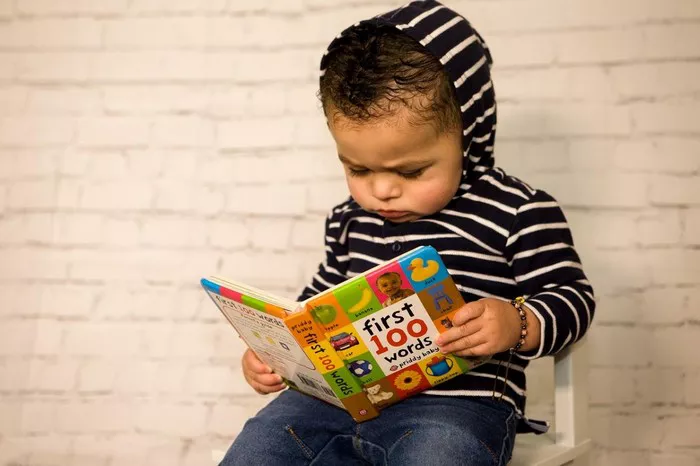Dyslexia is a specific learning disability that affects reading and language processing. While it does not affect intelligence, dyslexia can significantly impact various aspects of a person’s life, from academic performance to social interactions and self-esteem. Understanding the multifaceted ways in which dyslexia influences individuals is crucial for fostering support, improving educational strategies, and promoting inclusivity in society.
Understanding Dyslexia: Definition and Characteristics
Dyslexia is characterized by difficulties in accurate and fluent word recognition, spelling, and decoding abilities. Individuals with dyslexia may struggle with reading comprehension despite having normal intelligence and adequate educational opportunities. The condition varies in severity and can present challenges across different stages of life, from early childhood to adulthood.
Early Impact: Educational Challenges and Developmental Milestones
The effects of dyslexia often become apparent during the early years of schooling when children are expected to acquire reading skills. Difficulties in phonological processing, letter-sound correspondence, and rapid naming tasks can hinder progress in reading acquisition. This early struggle can lead to frustration, avoidance of reading-related activities, and a sense of inadequacy compared to peers.
In educational settings, students with dyslexia may require specialized instruction tailored to their learning needs. Without appropriate intervention, they may fall behind academically, affecting their overall educational outcomes and future opportunities. Early identification and intervention are crucial for minimizing the impact of dyslexia on educational achievement.
Cognitive and Psychological Effects: Beyond Reading Difficulties
Beyond the challenges in reading and language processing, dyslexia can affect various cognitive functions and psychological well-being. Research indicates that individuals with dyslexia may exhibit strengths in areas such as problem-solving, creativity, and visual thinking. However, difficulties with reading fluency and comprehension can contribute to feelings of frustration, anxiety, and low self-esteem.
The psychological impact of dyslexia extends beyond academic settings, influencing personal relationships, career choices, and overall quality of life. Negative experiences in school, such as teasing or bullying due to reading difficulties, can contribute to emotional distress and social isolation. Understanding the emotional and psychological effects of dyslexia is essential for providing holistic support to individuals affected by the condition.
Social Implications: Relationships and Self-Perception
Social interactions can be challenging for individuals with dyslexia, particularly in environments that emphasize verbal communication and written language skills. Difficulties with reading and writing may affect the ability to participate in conversations, follow instructions, or express thoughts coherently. These challenges can impact friendships, romantic relationships, and professional interactions.
Self-perception and identity development can also be influenced by dyslexia. Individuals may internalize negative stereotypes or perceive themselves as less capable due to their difficulties with reading and writing. Positive reinforcement, supportive relationships, and access to assistive technologies can help mitigate these challenges and promote a positive self-image.
See Also: Is Dyslexia a Symptom of ADHD: Things You Need To Know
Academic and Career Trajectory: Challenges and Strategies for Success
Navigating educational and career paths with dyslexia requires resilience, perseverance, and access to appropriate accommodations. In academic settings, students may benefit from assistive technologies, modified instructional methods, and additional time for assignments and exams. These accommodations can help level the playing field and allow individuals with dyslexia to demonstrate their true abilities.
Choosing a career path can present unique challenges for individuals with dyslexia, as certain professions may rely heavily on strong reading and writing skills. However, many successful individuals with dyslexia have thrived in fields such as entrepreneurship, creative arts, engineering, and sciences. Leveraging strengths in visual thinking, problem-solving, and creativity can lead to fulfilling career opportunities.
Lifelong Learning and Adaptation: Strategies for Coping and Thriving
Managing dyslexia is an ongoing process that requires adaptive strategies and support systems throughout life. Developing strong compensatory skills, such as using mnemonic devices for memorization or employing speech-to-text software for writing, can enhance independence and productivity. Building resilience and self-advocacy skills are also essential for navigating challenges and advocating for necessary accommodations.
Continued research into dyslexia and advancements in educational practices and technology play a critical role in improving outcomes for individuals with the condition. Educators, parents, employers, and policymakers all have a role to play in creating inclusive environments that recognize and support the diverse strengths and needs of individuals with dyslexia.
Conclusion
In conclusion, dyslexia affects individuals in profound ways across multiple domains of life, from academic achievement and psychological well-being to social relationships and career development. While the challenges posed by dyslexia are significant, they can be effectively managed and mitigated with early intervention, personalized support, and a strengths-based approach to learning and development. By promoting awareness, understanding, and inclusivity, society can empower individuals with dyslexia to reach their full potential and contribute meaningfully to their communities.


